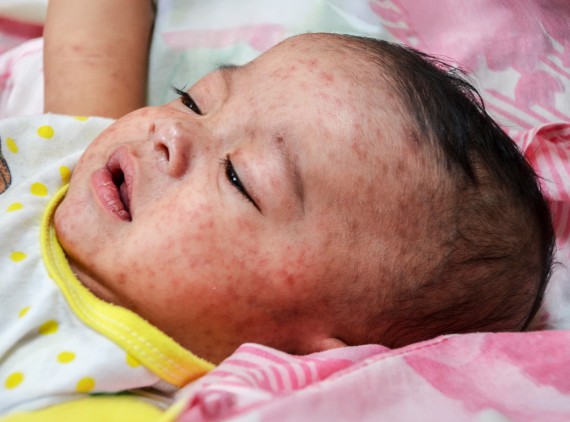Children are more at risk for measles if they have not had the MMR vaccine (measles, mumps and rubella), and they come in contact with someone who has measles. A person starts being contagious about four days before they develop the typical measles rash, so a child may have had contact with the virus without knowing it.
Do you think your child has measles?
Measles usually starts with a fever, cough, runny nose and red eyes that leads to a rash.
If someone in your family has measles symptoms, you should:
- Keep them away from healthy family members.
- Stay home.
- Call your doctor right away.
When should you take your child to the emergency room?
If the child who is sick rapidly gets worse or has any of the following symptoms, take them to the nearest emergency department, preferably one that specializes in pediatrics:
- Trouble breathing
- Pain when breathing
- Dehydration
- Fever or headache
- Confusion, decreased alertness
- Blue color around mouth
Please call ahead and report a suspected case of measles, so hospital staff can establish proper precautions and prevent measles from spreading further.
Measles is serious, especially for babies and young children. It can cause severe complications, including pneumonia, swelling of the brain (encephalitis) and death. One out of five people who get measles will be hospitalized, and one out of twenty children with measles will get pneumonia.
You can protect your child against measles by making sure they get the measles, mumps and rubella (MMR) vaccines. If you have questions, please talk to your child’s pediatrician.

